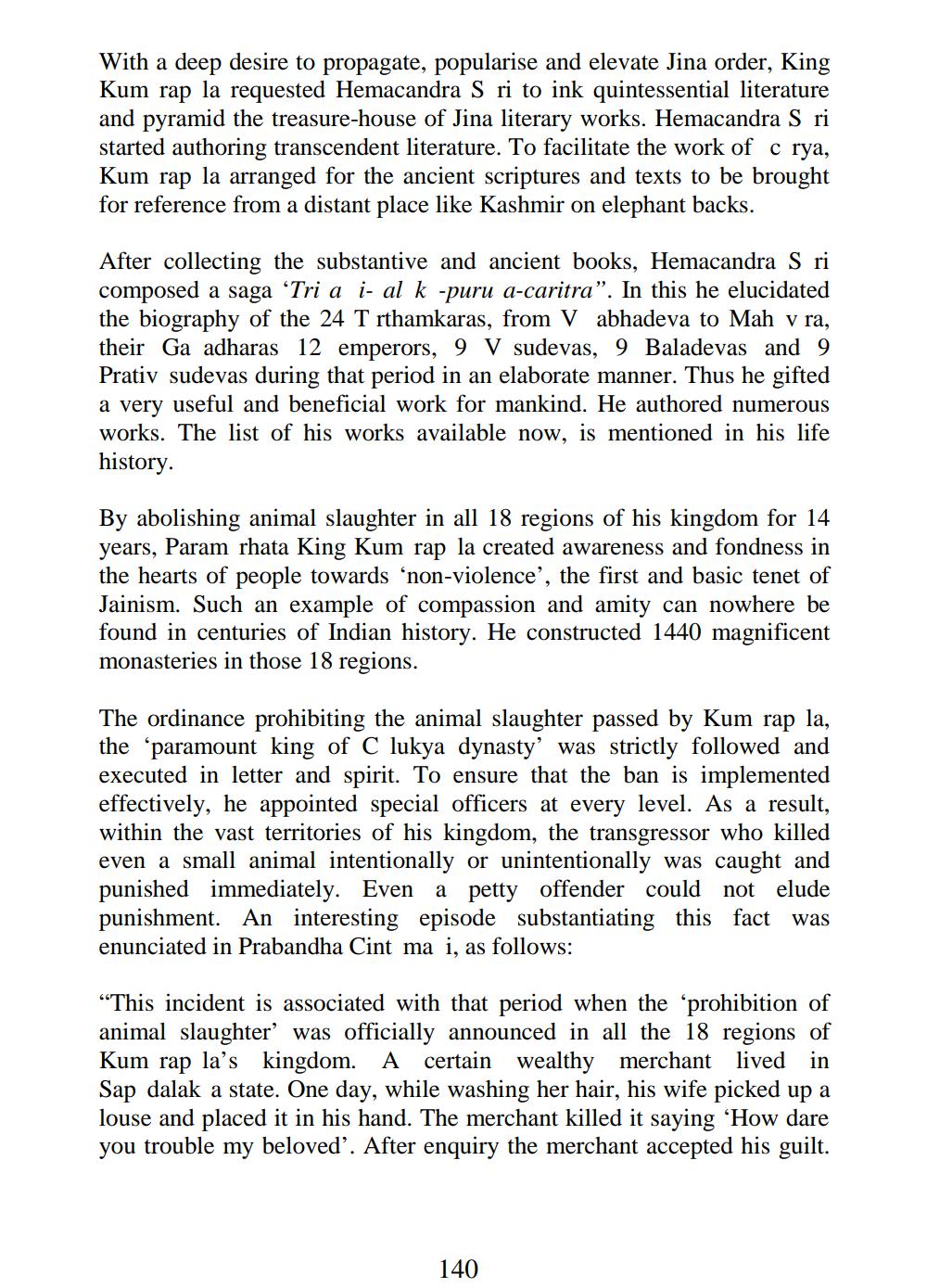________________
With a deep desire to propagate, popularise and elevate Jina order, King Kum rap la requested Hemacandra S ri to ink quintessential literature and pyramid the treasure-house of Jina literary works. Hemacandra S ri started authoring transcendent literature. To facilitate the work of c rya, Kum rap la arranged for the ancient scriptures and texts to be brought for reference from a distant place like Kashmir on elephant backs.
After collecting the substantive and ancient books, Hemacandra S ri composed a saga 'Tri a i- al k -puru a-caritra”. In this he elucidated the biography of the 24 T rthamkaras, from Vabhadeva to Mah v ra their Ga adharas 12 emperors. 9 V sudevas. 9 Baladevas and 9 Prativ sudevas during that period in an elaborate manner. Thus he gifted a very useful and beneficial work for mankind. He authored numerous works. The list of his works available now, is mentioned in his life history.
By abolishing animal slaughter in all 18 regions of his kingdom for 14 years, Param rhata King Kum rap la created awareness and fondness in the hearts of people towards ‘non-violence', the first and basic tenet of Jainism. Such an example of compassion and amity can nowhere be found in centuries of Indian history. He constructed 1440 magnificent monasteries in those 18 regions.
The ordinance prohibiting the animal slaughter passed by Kum rap la, the 'paramount king of C lukya dynasty' was strictly followed and executed in letter and spirit. To ensure that the ban is implemented effectively, he appointed special officers at every level. As a result, within the vast territories of his kingdom, the transgressor who killed even a small animal intentionally or unintentionally was caught and punished immediately. Even a petty offender could not elude punishment. An interesting episode substantiating this fact was enunciated in Prabandha Cint ma i, as follows:
“This incident is associated with that period when the 'prohibition of animal slaughter' was officially announced in all the 18 regions of Kum rap la's kingdom. A certain wealthy merchant lived in Sap dalak a state. One day, while washing her hair, his wife picked up a louse and placed it in his hand. The merchant killed it saying 'How dare you trouble my beloved'. After enquiry the merchant accepted his guilt.
140




